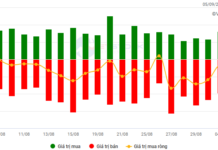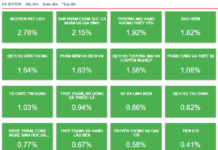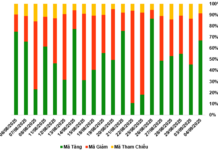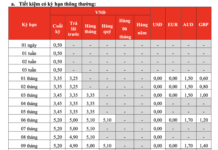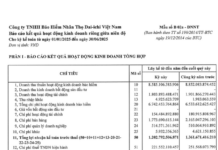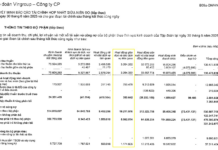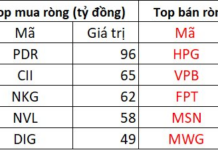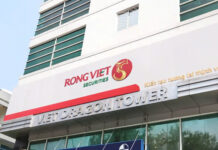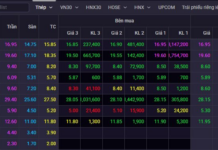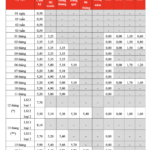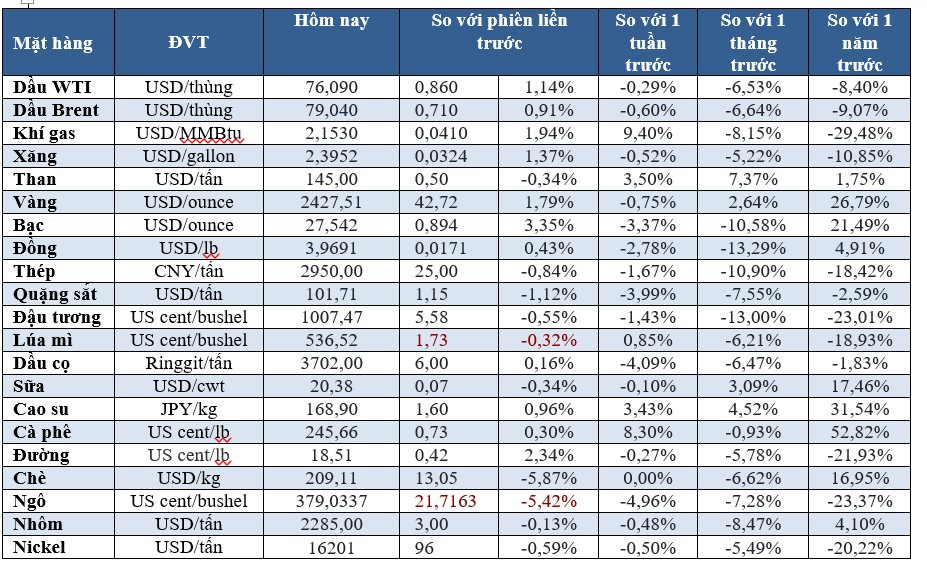Amending the Decree: Addressing Inefficiencies in Commodity Trading in Vietnam
On September 27, the Ministry of Industry and Trade organized a workshop to develop a draft decree to replace Decree No. 158/2006/ND-CP and Decree No. 51/2018/ND-CP on commodity trading activities at the Vietnam Commodity Exchange (MXV).
AMENDING THE DECREE, ADDRESSING INEFFICIENCIES IN COMMODITY TRADING IN VIETNAM
Speaking at the workshop, Mr. Bui Nguyen Anh Tuan, Vice-Head of the Drafting Committee and Head of the Editorial Team for the Decree, stated that the 18-year process of guiding the implementation of the 2005 Commerce Law on commodity trading activities, Decree No. 158/2006/ND-CP, Decree No. 51/2018/ND-CP, and related legal documents has provided a legal framework for the development of commodity trading in Vietnam.
However, in recent years, the National Assembly has passed several laws impacting this field, including the 2017 Foreign Trade Management Law, the 2018 Cyber Security Law, the 2018 Competition Law, the 2020 Investment Law, and the 2020 Enterprise Law.
Additionally, the implementation of legal documents on commodity trading activities through exchanges has revealed numerous shortcomings, obstacles, and overlaps that need to be addressed.
Moreover, Vietnam has engaged in and negotiated many FTAs at both the bilateral and multilateral levels, leading to a demand for the development of intermediary trading systems for import and export commodities with the international market.
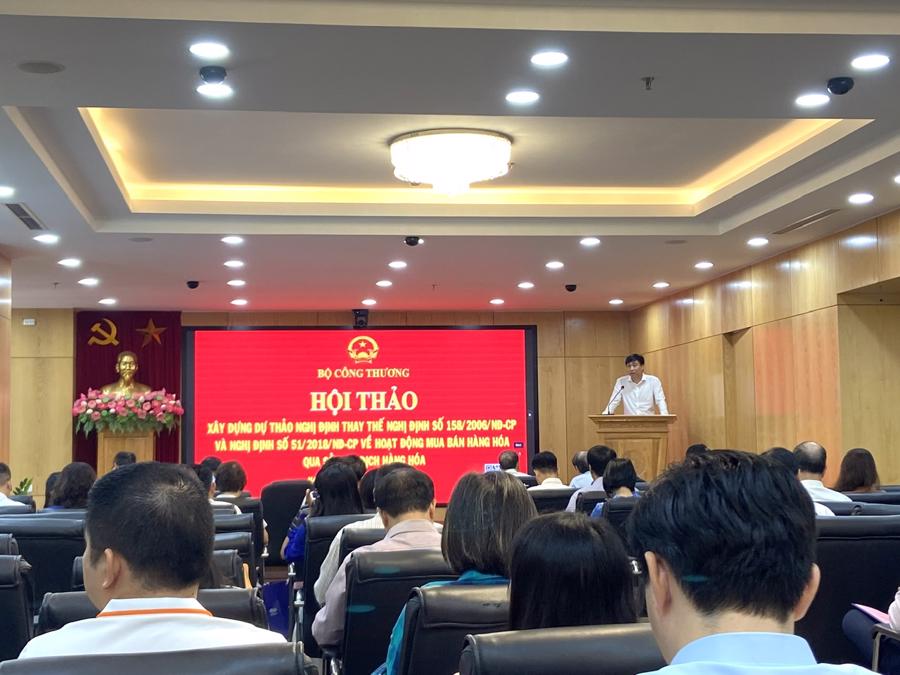
Therefore, in fulfilling the task assigned by the Government, the Ministry of Industry and Trade has developed a draft decree to replace Decree No. 158/2006/ND-CP and Decree No. 51/2018/ND-CP on commodity trading activities through exchanges.
The draft decree comprises 16 chapters and 140 articles regulating commodity trading activities through exchanges and is currently open for public consultation.
PERSISTENT CONCERNS
At the workshop, Dr. Tran Van Binh, a specialist in commodity trading research and a former MXV trader, raised the issue of clarifying MXV’s current role. Decree 158 stipulates selecting commodities from the list specified in Article 32 of this Decree for trading via MXV.
However, there are currently no Vietnamese commodities traded on MXV or linked to physical delivery. “In 2022, I registered as an MXV trading member, but I was disappointed to find no actual commodities,” said Mr. Binh.
He questioned the role of the commodity exchange, emphasizing that there are no physical commodity transactions as stipulated in Article 63 of the Commerce Law and Decree 158. “This is just a game of green and red lights, with all transactions based on rising and falling indices. There are no actual commodities, not even 1%, and no Vietnamese products are currently traded on domestic or international exchanges. Commodity trading has become a game,” he stressed.
Article 5 of Decree 51 also clearly mentions traders buying and selling goods through MXV, but most accounts opened are for speculation by individuals. Enterprises open accounts primarily for risk hedging purposes. Most enterprises open accounts at commercial banks for risk hedging in commodity trading with other countries under the State Bank’s Circular 40.
Furthermore, there is currently no clearing and settlement center or commodity trading center, making MXV’s operations devoid of any beneficial elements for the market and fraught with risks to national security.
Therefore, Dr. Binh emphasized the mandatory need for a clearing and settlement center. He added, “If we are making a decree, there must be real commodities, even if it’s just 0.1%. There must be a warehouse and logistics system, and connections with large enterprises—this is the essence of commodity trading.”
Another issue concerns Article 49 on the Approval of Membership Qualifications by the Commodity Exchange, which states that the exchange shall not collect any fees other than the membership guarantee fee and the annual fee. However, MXV currently charges a non-refundable membership registration fee of 150,000,000 VND, which Dr. Binh considers unreasonable and requiring clarification.
Additionally, the decree stipulates that the clearing and settlement center is responsible for correctly executing exchange rate fluctuations as prescribed by the State Bank and the Ministry of Finance when the commodity transaction is linked to a foreign country. However, speculators’ accounts do not benefit from these exchange rate fluctuations, which MXV currently profits from, despite the considerable sum involved in each trading session…
Regarding the guarantee deposit for membership qualifications, Mr. Binh frankly suggested specifying the amount and purpose of this deposit in the decree. He analyzed that the current situation goes against the law, as the guarantee deposit is not placed in a blocked account but in the exchange’s payment account, and members do not earn interest, not even the minimum deposit interest rate of 2%.
COMPREHENSIVE IMPACT ASSESSMENT OF THE DRAFT DECREE IS NEEDED
To expedite the decree’s issuance and optimize the commodity market’s functioning, Dr. Vo Tri Thanh, President of the Institute for Brand and Competition Strategy Research, suggested considering aspects such as establishing a commodity exchange to leverage the advantages of agricultural products and aligning the exchange’s activities with the orientation of building financial centers in major cities.
Additionally, the decree’s development should consider international practices and the realities of enterprises and entities participating in the commodity exchange to comprehensively assess its impact. This assessment will enable the formulation of new and high-quality provisions to reduce risks and facilitate the activities of these entities.
Concluding the workshop, Mr. Bui Nguyen Anh Tuan stated that the Domestic Market Department of the Ministry of Industry and Trade, as the focal point, would synthesize and collect feedback from all parties. The Ministry will conduct a comprehensive impact assessment of the draft decree on the concerned entities, ensuring that the final version aligns with the stated objectives.
This includes refining the market entry conditions and procedures to ensure that the market organization and operation match the current scale of activities.
It also entails refining and amending the regulations on the organization and operation of enterprises and individuals participating in the commodity trading market through exchanges.
Simultaneously, it involves refining the content related to state management, supervision, law enforcement, and handling of violations in this field.
The Evolution of Toyota’s Eco-Friendly Vehicles in Vietnam: A Conversation with the Country’s Top Executive
The head of Toyota Vietnam acknowledges the growing environmental consciousness among consumers, as evidenced by the month-on-month rise in sales of Toyota’s hybrid vehicles. Notably, the Innova Cross model witnessed a substantial 38% of its total sales attributed to the hybrid version, reflecting a shift in consumer preferences towards environmentally friendly options.
Anxiously Reviving the North’s Largest Bonsai Village
“I have to immediately rehabilitate the land and borrow capital for reproduction. The people of Phung Cong will rise again, and the fields will be green,” said Nguyen Thi Quyen determinedly. However, like many other residents of Phung Cong, Sister Quyen is anxious and worried as the dike has been destroyed for a real estate project, and the floods will inevitably return one day…

